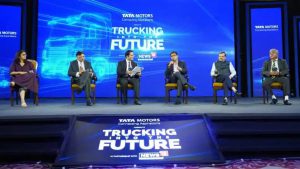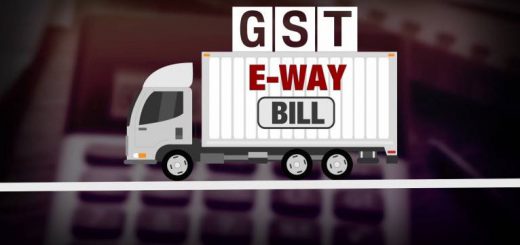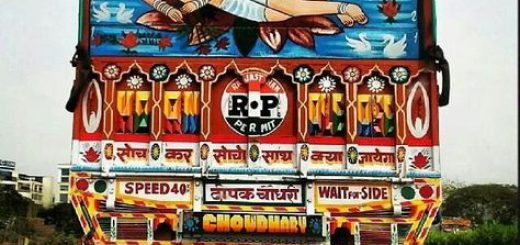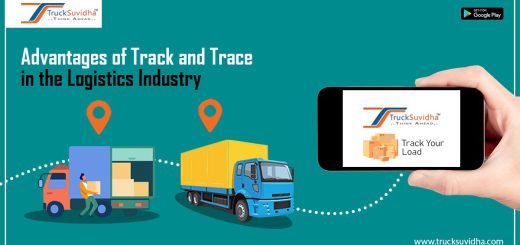Trucking into the Future – Innovations, Challenges, and Opportunities in the Indian Logistics Sector
The wheels of innovation are transforming the logistics and transportation space in India at a break-neck momentum. India’s post-covid resilience combined with a swift National Logistics Policy by the government has fueled the growth which is pegged at a CAGR of 10.5%. With our visionary Hon’ble Road Transport & Highways Minister, Nitin Gadkari at the helm, the transformations in road construction are putting India at par with its global counterparts. Given the diversity of our nation, the opportunities aren’t without roadblocks that require sector-wise review and support for sustainable economic progress. To deliberate on the challenges of the logistics space and tackle them with intellectual acumen and innovative solutions, Tata Motors collaborated with the News18 network to create a thought leadership platform under the title “Trucking into the Future”. This unique initiative brought leaders from diverse sectors such as Steel, Cement, Petroleum, Oil, and Lubricants under its ambit in Mumbai, followed by an event elaborating on the logistics needs of E-commerce and Road construction in Delhi.
Speaking on the special occasion, in his inaugural address, Mr. Girish Wagh, President, Tata Motors Ltd., spoke about the ambitious target of cutting cost and bringing it to a single-digit percentile from the current 14%, which has been set by the recently unveiled NLP by the Hon’ble PM. He quoted, “The vision of the National Logistics Policy is to build a modern, efficient and resilient logistics sector that seamlessly integrates multiple modes of transportation systems, leverage the best-in-class tech processes and skilled manpower to significantly improve the country’s logistics performance and reduce the cost”. He concluded his address by emphasizing Tata Motor’s endeavour towards constant quality innovations, ahead of the curve investments in order to develop safe, sustainable, smart, and connected logistics solutions, and in turn, ensuring positive contributions to all the stakeholders in the transportation ecosystem.

Following the keynote, there was a CEO’s panel with prominent personalities like Mr. Girish Wagh, Executive Director, Tata Motors Ltd; Peeyush Gupta, Vice President, Supply Chain, Tata Steel; Saurabh Palsania, Executive Director, Group Commercial Head, Dalmia Cement (Bharat) Ltd; V G Sakthikumar, Managing Director, Schwing Stetter (India) Pvt. Ltd; Dipti Vaishnav, Managing Director, Lead – Industrial and Mobility, Accenture India as the panelists who shared their thoughts on Making India’s Logistics Safer, Faster & Cleaner.
The special occasion was graced by Hon’ble Minister, Shri Nitin Gadkari, whose infectious enthusiasm was evident in his stance as he shared interesting stats on the fast-paced growth in India’s Logistics, automobile industry, and transport sector. Sharing some highlights, he spoke about how traffic congestion is being tackled by building 27 robust express highways across the length and breadth of the country which will add speed to reduce travel time tremendously. Stressing the need for alternative fuels, he spoke about the upcoming E-highway which will ease commercial and passenger travel woes thus reducing the dependence on pollution-causing fuels such as Diesel and Petrol. Stressing the importance of Solar Power, the minister shared the launch of an LNG truck with a capacity of 1400KM. He drew attention to the production of Bitumen at the Panipat plan and production of methanol at the Assam plan which are eco-conscious measures invariably driving down costs. Additionally, he said, “The future of the industry is Hydrogen, which can be made from coal that is black, hydrogen from petroleum that is brown, hydrogen and we can make green hydrogen from the sewage water”. This will drastically curtail the logistics cost, which is an important concern in Indian trade and business.
Another important factor in arresting pollution is the scrapping of old vehicles. Mr. Gadkari appealed to all stakeholders to take cognizance of this problem and expedite the process by offering incentives or considering greener options. He is positive that this move will have a desirable impact in lowering cost, and pollution and offering economies of scale.
Mr. Gadkari spoke about the bright future of the automobile industry replete with the manufacturing of e-scooters, and the design, and development of new tech which will bring down travel & transportation costs to a large extent. He divulged how work is already underway on battery chemistry, and the exploration of sodium ion, aluminium ion, and sodium ion which will revolutionize the battery space in car manufacturing thus bringing in cost efficiencies.
On a humble note, Mr. Gadkari spoke about road safety and accident prevention and stated how there is a lot left to be desired despite ongoing efforts in this space. He admitted this is a dark area with 5 lakh accidents and 1.5 lakh deaths plaguing Indian roads. Mr. Gadkari spoke on four factors that are being judiciously worked on: road engineering, automobile engineering, education of the general public, and emergency service upgrade to combat this menace. He called for support from media and industry partners to come forth to tackle this glaring hazard that leads to the loss of innocent lives. Having extensively worked in the road safety space, Mr. Gadkari spoke about the need for humane conditions for drivers and giving them basic comforts to avoid devastating scenarios. He further urged the industry to adopt quality measures instead of only focussing on cost-reduction means, he said, “We are talking with the automobile industry to bring six airbags in every setup of cars, with different other measures to safeguard the road accidents. Ecology and Economy are two important factors for a country. This is the time we have to be very much aware of the same. My request to all of you is to create awareness among the minds of the people and we need good cooperation from the people”.
Furthermore, the event had two more panel discussions, the first-panel discussion on Road Construction Sector: Making India Move had eminent panellists like Rajesh Kaul, Vice President and Head, Sales & Marketing, Domestic Commercial Vehicles Business, Tata Motors Ltd; DK Sen, Whole-time Director & Sr. Executive Vice President (Development Projects), L&T; Vineet Vijayavargia, Managing Director & Partner, BCG; Dr Sanjay Gupta, Senior VP & Head of Techno-commercial APSEZ and Logistics Adani Ports and SEZ; Nirmal Jit Singh, ED, CEG (Consulting Engineers Group).
While the second panel consisted of Sandeep Kulkarni, Chief Supply Chain Officer, Tata CLiQ; Chander Agarwal, Managing Director, TCI Express; Parag Aggarwal, Co-founder & CEO, GoBOLT; Rajesh Kaul, Vice President and Head, Sales & Marketing, Domestic Commercial Vehicles Business, Tata Motors Ltd; Som Kapoor, Partner Automotive, Future of Mobility Leader, EY India, who shared their valuable opinions on the topic e-comm: The Digital Driver on Indian Roads.
The insightful panel discussions, a sneak peek into the future of multi-modal transportation, Industry consensus on the adoption of innovative methods and alternative fuels, and tackling concerns of the transportation Industry will set India on the right path in achieving the objectives of safer, faster and cleaner logistics.
Read more at-https://bit.ly/3FpUJx4




Recent Comments